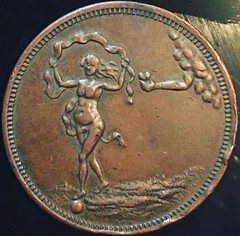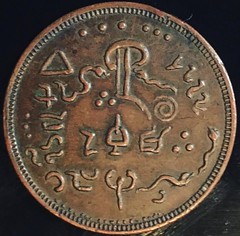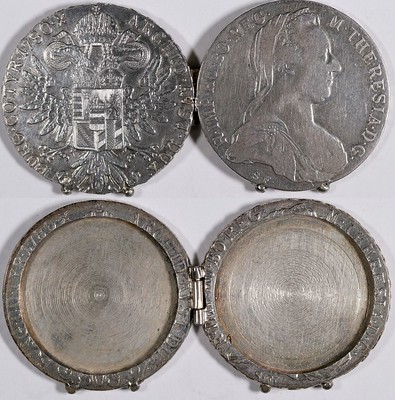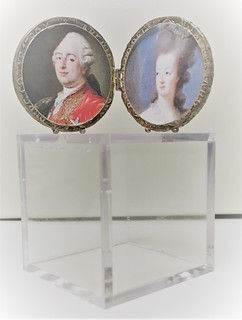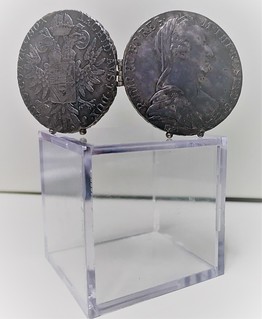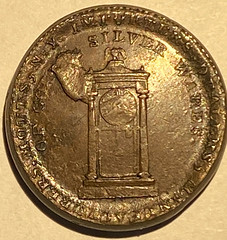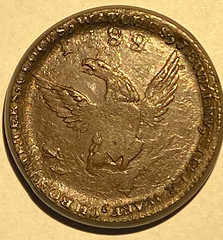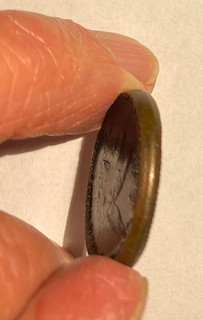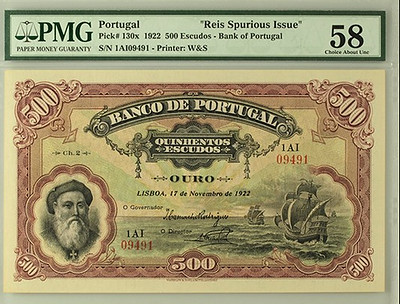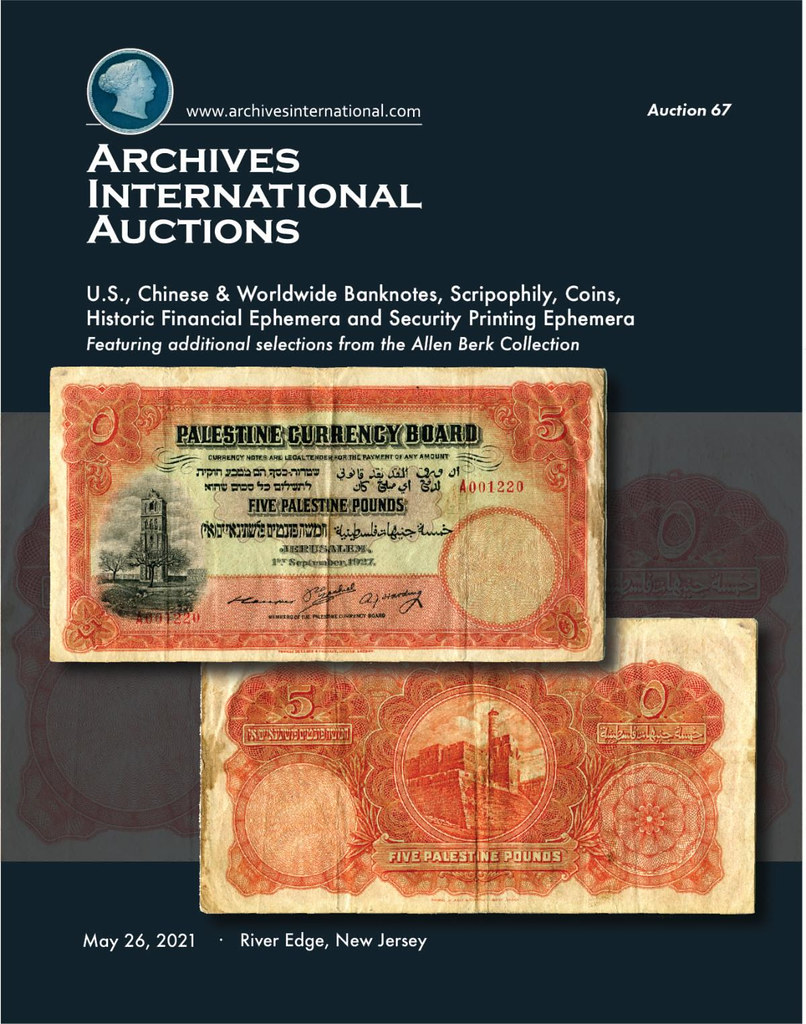
PREV ARTICLE
NEXT ARTICLE
FULL ISSUE
PREV FULL ISSUE
NOTES FROM E-SYLUM READERS: MAY 9, 2021
Whitehead & Hoag Piece NOT a Magic Token Magic Tokens book author Paul Courville also responded on that mysterious Whitehead & Hoag token some thought might be a magic piece. Thanks! The best thing about The E-Sylum is getting answers directly from people in a position to know. -Editor Paul writes: "The Fortuna item and about 30 others are NON-magic related items that I frequently get asked about. As Jud Petrie replied in the article, there are many collectors who have one or many unauthenticated items within their collections but they are in no way found to have any association to magic in any way but they have "that look" to them... I have a few of them in my junk token box because they were in the collections of Raymond Goulet, James Eastman and Micky Hades which I purchased over the years." Paul also notes: "My book is still in print and I updated its content just last week. It is available via Amazon, but then again... It's FREE on my website and the PDF version is searchable for quick searches."
To access the book online, see:
To read the earlier E-Sylum articles, see:
10th Anniversary of The Banknote Book In an email to subscribers this week, publisher Owen Linzmayer writes: "After many years of preparation, ten years ago this week I began publishing The Banknote Book with an initial release of 10 chapters. Since then, the catalog has swelled to 298 chapters, with a total of 7,388 pages covering 71,015 types and varieties. I'd like to thank everyone who has helped reach this milestone, especially my co-author collaborators and the many subscribers and contributors who've spent countless hours scanning their collections, sharing information, and reviewing drafts to ensure the catalog is as accurate as possible." Congratulations on reaching this milestone! Writer Louis Golino recently reached a 10-year milestone as well - see the article elsewhere in this issue. -Editor
For more information, see:
Tony Terranova writes: "That Maria Teresa "box/locket" is a double miniature picture frame, meant to stand up on its balled feet at a partially closed angle." Ken Spindler of San Diego writes: "Regarding the "Maria Theresa Thaler Opium Box" in the Holabird auction, I own the exact same thing, but never considered the possibility that it might have been an opium or anything else intended-to-be-concealed holder, even though I collect substance abuse-related numismatica and own a few silver and copper "convict box" pieces. "It is free standing, on those little feet. I've been using mine as a picture frame, which is what I always thought it was intended to be in the first place. In mine I fitted nice round color portraits of French King Louis XVI and Queen Marie Antoinette (Austrian Archduchess Maria Theresa's youngest daughter), as an adjunct to my French Revolution numismatic stuff collection. I display it in my china cabinet, open, inside a small lucite cube-box to keep out the dust. " Thanks, everyone. Above is the item in the Holabird sale; below are the images Ken sent of his example. Nice! -Editor
To read the earlier E-Sylum article, see:
Tony Terranova writes: "That Mott token was "spooned", at first glance. Open to debate." Tom DeLorey writes: "I agree that Bob Rhue's Mott Token was reduced in diameter after it was struck, though I would like to see it in hand before I could speculate as to how that was done. "However, there seems to be a typographical error in the diameters given for this piece and normal pieces. I believe that 20 mm was somehow subtracted from each figure." Later Tom added:
"The texture of the re-upset edge is a bit coarse. My best educated guess is that it was made contemporary to the striking of the token (whenever that was). It is quite possible that this happened at the same shop where the token was struck at or very close to the same time. There is no indication that the piece circulated either before or after the re-upsetting. "Could any of your noble readers provide a picture or two of the edge of a high-grade Mott? It has been a while since I handled one, and I never bothered to study the edge." Thanks! Neat piece. -Editor
To read the earlier E-Sylum article, see:
Dennis Hengeveld of World Banknote Auctions writes: "Regarding the spurious Portuguese 500 Escudos ordered by Alves Reis at Waterlow & Sons: These notes cannot always be identified by serial number (although some prefixes are always spurious). The serial numbers are in some cases identical between genuine and spurious notes. For example, the British Museum has a pair on display, one genuine and one counterfeit, with the exact same prefix and serial number. "There were 200,000 fraudulent notes printed and in certain cases these fraudulent notes can be identified, but the methods in doing so are not widely published and involve plate letters located in extremely small font on the notes (usually impossible to see in scans) and other (somewhat disputed) characteristics. Even in hand, however, in some instances it is impossible to distinguish between genuine and fraudulent." Thank you. I shouldn't have assumed that the serial numbers were the only diagnostic. -Editor
To read the earlier E-Sylum article, see:
Wayne Homren, Editor The Numismatic Bibliomania Society is a non-profit organization promoting numismatic literature. See our web site at coinbooks.org. To submit items for publication in The E-Sylum, write to the Editor at this address: whomren@gmail.com To subscribe go to: https://my.binhost.com/lists/listinfo/esylum All Rights Reserved. NBS Home Page Contact the NBS webmaster 
|
